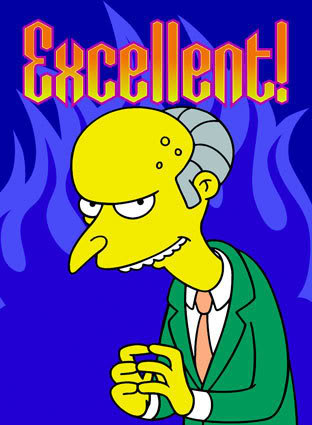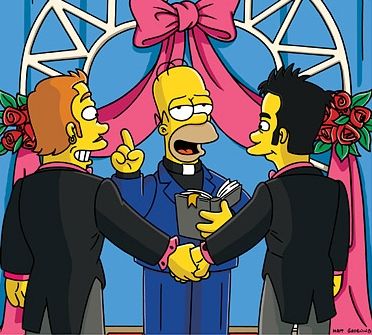Philosophy
 Episode 12. When we, post-colonial citizens of liberal democracies in the 21st century, deliberate about principles of justice and the distribution of rights, we tend to think that respect for the plurality of competing conceptions of the good requires that we consider them from a neutral point of view, focusing only on the formal question of equality under the law, and not on any substantive or normative questions of value.
Episode 12. When we, post-colonial citizens of liberal democracies in the 21st century, deliberate about principles of justice and the distribution of rights, we tend to think that respect for the plurality of competing conceptions of the good requires that we consider them from a neutral point of view, focusing only on the formal question of equality under the law, and not on any substantive or normative questions of value.
In these two final lectures, Professor Sandel tries to challenge this notion by suggesting that questions of justice and legal rights cannot be properly understood independently of our conception of the good. Try as we might, he argues, we cannot ultimately separate these questions from their historic and social roots without falling into the trap of self-delusion and wishful thinking. For citizens of a pluralistic society, this raises the question of how we can reason about the good life without establishing social institutions that end up imposing the tyrannical values of the majority on everyone else.
 The development of this controversial claim takes place in the context of a discussion of same-sex marriage. Can we settle this question without considering the moral permissibility of homosexuality and the purpose of marriage? Or are these questions ultimately unavoidable?
The development of this controversial claim takes place in the context of a discussion of same-sex marriage. Can we settle this question without considering the moral permissibility of homosexuality and the purpose of marriage? Or are these questions ultimately unavoidable?
I happen to disagree with this question of the inseparability of our conceptions of the good and questions of justice and the distribution of rights, but whatever conclusion you come to, I think we can all agree that moral and social progress can only be made when we are willing to engage in open, critical and generous dialogue with each other.
Using Rawls' concept of reflective equilibrium, Professor Sandel demonstrates the importance and promise of the deliberative and self-correcting method of mutual adjustment between particular considered moral judgments and general moral principles. Progress may be slow, but it is possible.
For someone who endorses the honest expression of controversial points of view, Professor Sandel got rather shy about the question of masturbation, huh? :)
Episode list: 1, 2, 3, 4, 5, 6, 7, 8, 9, 10, 11, 12.
.
- So What Are These Ethical Issues Around Gay Marriage?
With North Carolina's enshrinement of bigotry into their state constitution and Obama's evolution to accepting the need for gay men and lesbians to receive fair and equal treatment under the law, there has been lots of talk about the ethical dilemma...
- Justice - What Is The Right Thing To Do?
Episode 10. Aristotle's teleological understanding of the universe made him think of social and political institutions in terms of goals and purposes. If you understand the telos of a particular institution or practice, then you would also understand...
- Justice - What Is The Right Thing To Do?
Episode 9. Affirmative Action is a notoriously contentious social, ethical and political issue, so before we let our emotions get the better of our judgment, it may be worth our time to consider its raison d'être: it stems from the recognition that...
- Justice - What Is The Right Thing To Do?
Episode 7. As we saw in the previous episode, the essence of Kant's categorical imperative is its absolute and universally binding force: since the moral status of our actions does not depend on consequences or contingent conditions, the moral law...
- Justice - What Is The Right Thing To Do?
Episode 3. The previous episode of this fascinating series of lectures on ethical and political philosophy from Harvard University focused on some of the implications of the aggregative requirements of utilitarianism. John Stuart Mill's advocacy of...
Philosophy
Justice - What Is the Right Thing To Do?
 Episode 12. When we, post-colonial citizens of liberal democracies in the 21st century, deliberate about principles of justice and the distribution of rights, we tend to think that respect for the plurality of competing conceptions of the good requires that we consider them from a neutral point of view, focusing only on the formal question of equality under the law, and not on any substantive or normative questions of value.
Episode 12. When we, post-colonial citizens of liberal democracies in the 21st century, deliberate about principles of justice and the distribution of rights, we tend to think that respect for the plurality of competing conceptions of the good requires that we consider them from a neutral point of view, focusing only on the formal question of equality under the law, and not on any substantive or normative questions of value.In these two final lectures, Professor Sandel tries to challenge this notion by suggesting that questions of justice and legal rights cannot be properly understood independently of our conception of the good. Try as we might, he argues, we cannot ultimately separate these questions from their historic and social roots without falling into the trap of self-delusion and wishful thinking. For citizens of a pluralistic society, this raises the question of how we can reason about the good life without establishing social institutions that end up imposing the tyrannical values of the majority on everyone else.
 The development of this controversial claim takes place in the context of a discussion of same-sex marriage. Can we settle this question without considering the moral permissibility of homosexuality and the purpose of marriage? Or are these questions ultimately unavoidable?
The development of this controversial claim takes place in the context of a discussion of same-sex marriage. Can we settle this question without considering the moral permissibility of homosexuality and the purpose of marriage? Or are these questions ultimately unavoidable?I happen to disagree with this question of the inseparability of our conceptions of the good and questions of justice and the distribution of rights, but whatever conclusion you come to, I think we can all agree that moral and social progress can only be made when we are willing to engage in open, critical and generous dialogue with each other.
Using Rawls' concept of reflective equilibrium, Professor Sandel demonstrates the importance and promise of the deliberative and self-correcting method of mutual adjustment between particular considered moral judgments and general moral principles. Progress may be slow, but it is possible.
For someone who endorses the honest expression of controversial points of view, Professor Sandel got rather shy about the question of masturbation, huh? :)
Episode list: 1, 2, 3, 4, 5, 6, 7, 8, 9, 10, 11, 12.
.
- So What Are These Ethical Issues Around Gay Marriage?
With North Carolina's enshrinement of bigotry into their state constitution and Obama's evolution to accepting the need for gay men and lesbians to receive fair and equal treatment under the law, there has been lots of talk about the ethical dilemma...
- Justice - What Is The Right Thing To Do?
Episode 10. Aristotle's teleological understanding of the universe made him think of social and political institutions in terms of goals and purposes. If you understand the telos of a particular institution or practice, then you would also understand...
- Justice - What Is The Right Thing To Do?
Episode 9. Affirmative Action is a notoriously contentious social, ethical and political issue, so before we let our emotions get the better of our judgment, it may be worth our time to consider its raison d'être: it stems from the recognition that...
- Justice - What Is The Right Thing To Do?
Episode 7. As we saw in the previous episode, the essence of Kant's categorical imperative is its absolute and universally binding force: since the moral status of our actions does not depend on consequences or contingent conditions, the moral law...
- Justice - What Is The Right Thing To Do?
Episode 3. The previous episode of this fascinating series of lectures on ethical and political philosophy from Harvard University focused on some of the implications of the aggregative requirements of utilitarianism. John Stuart Mill's advocacy of...
